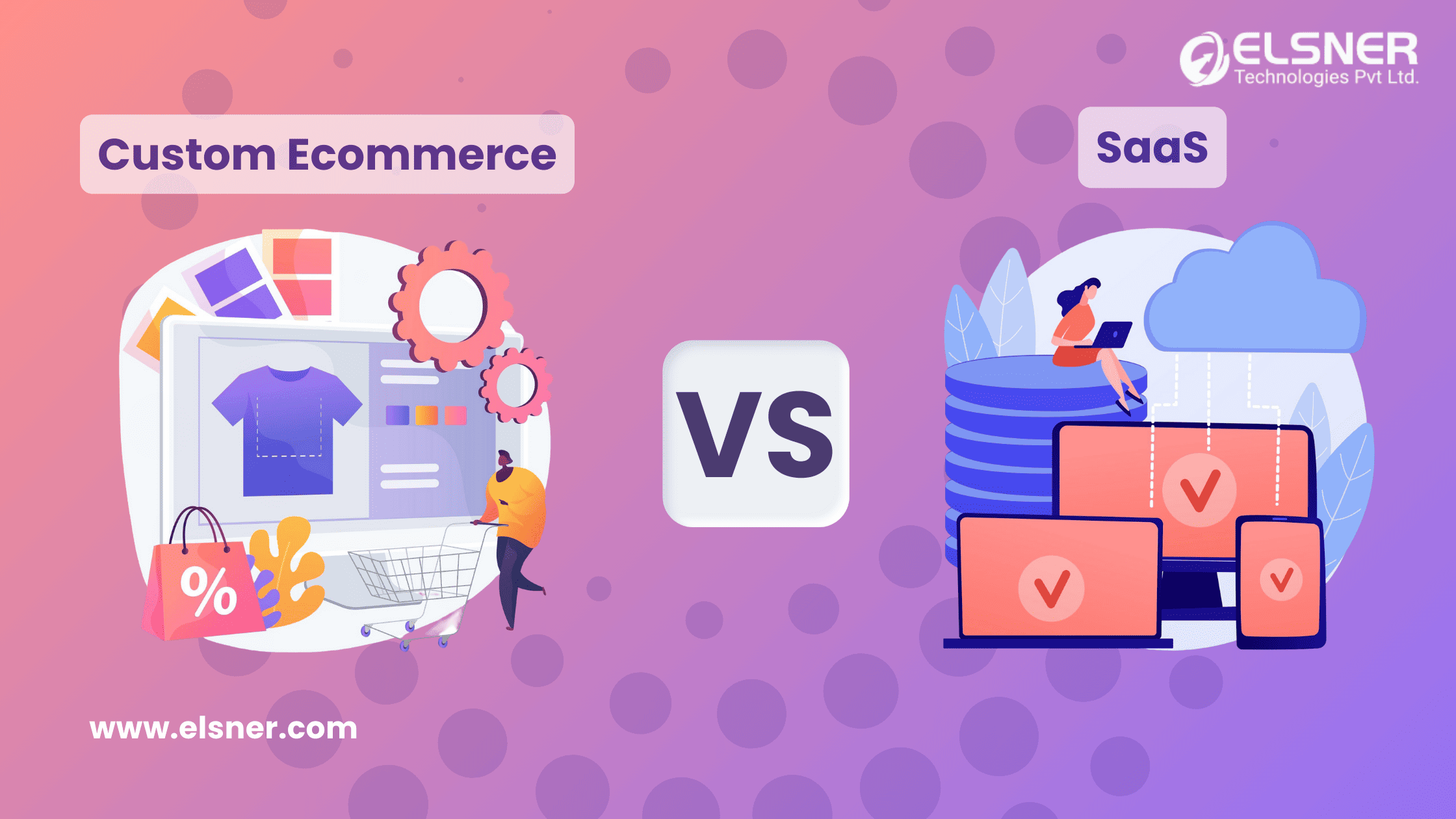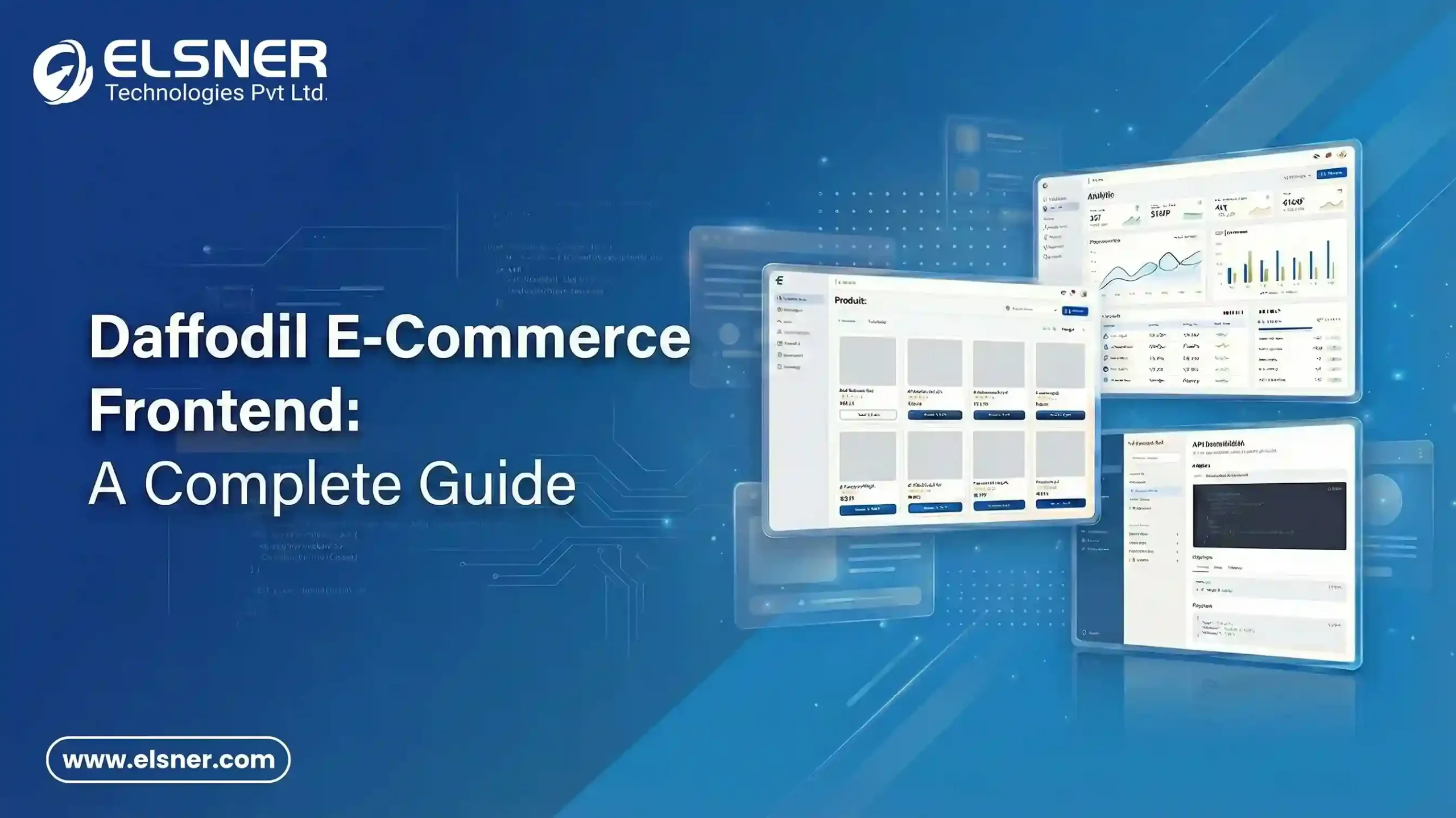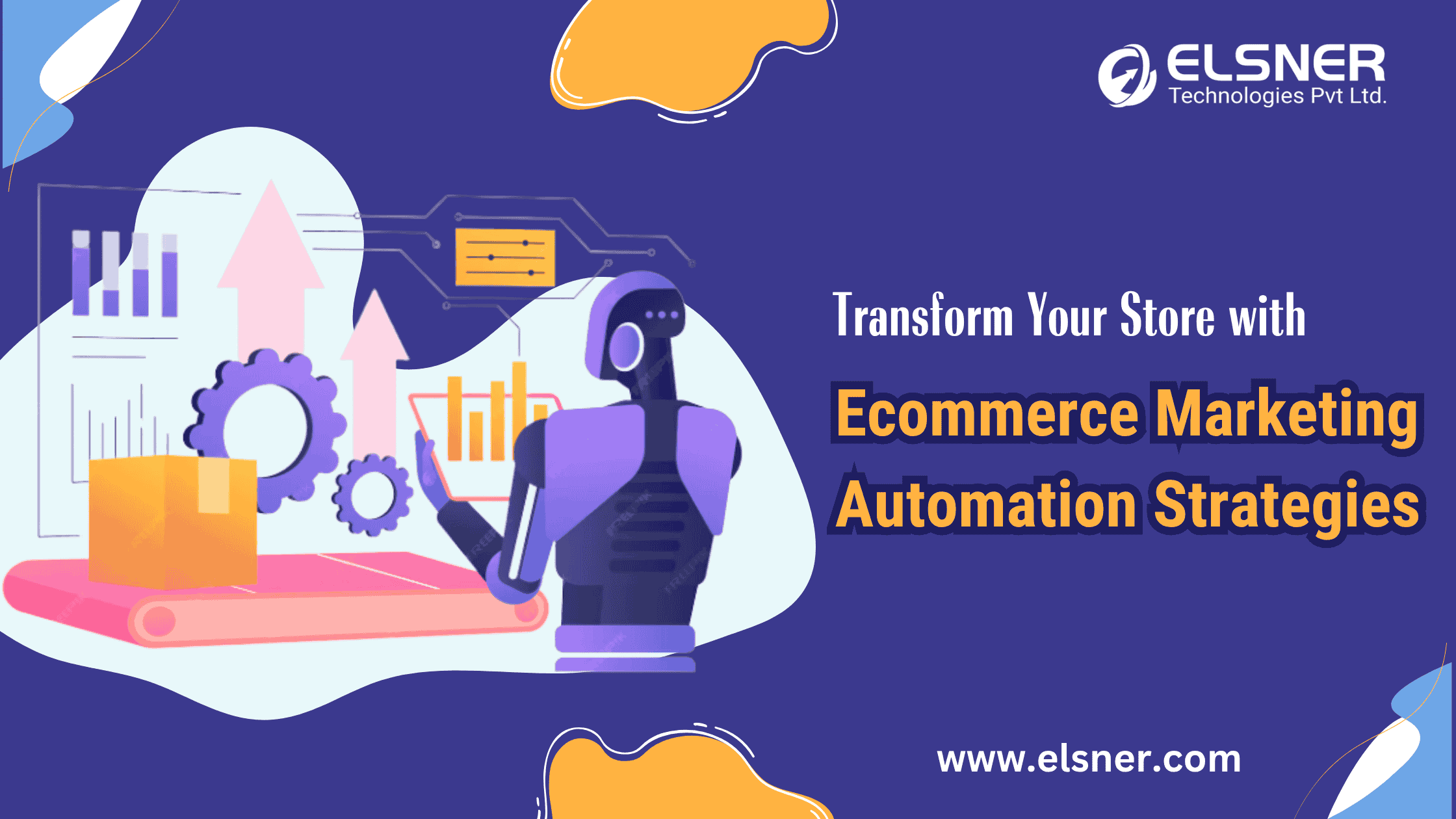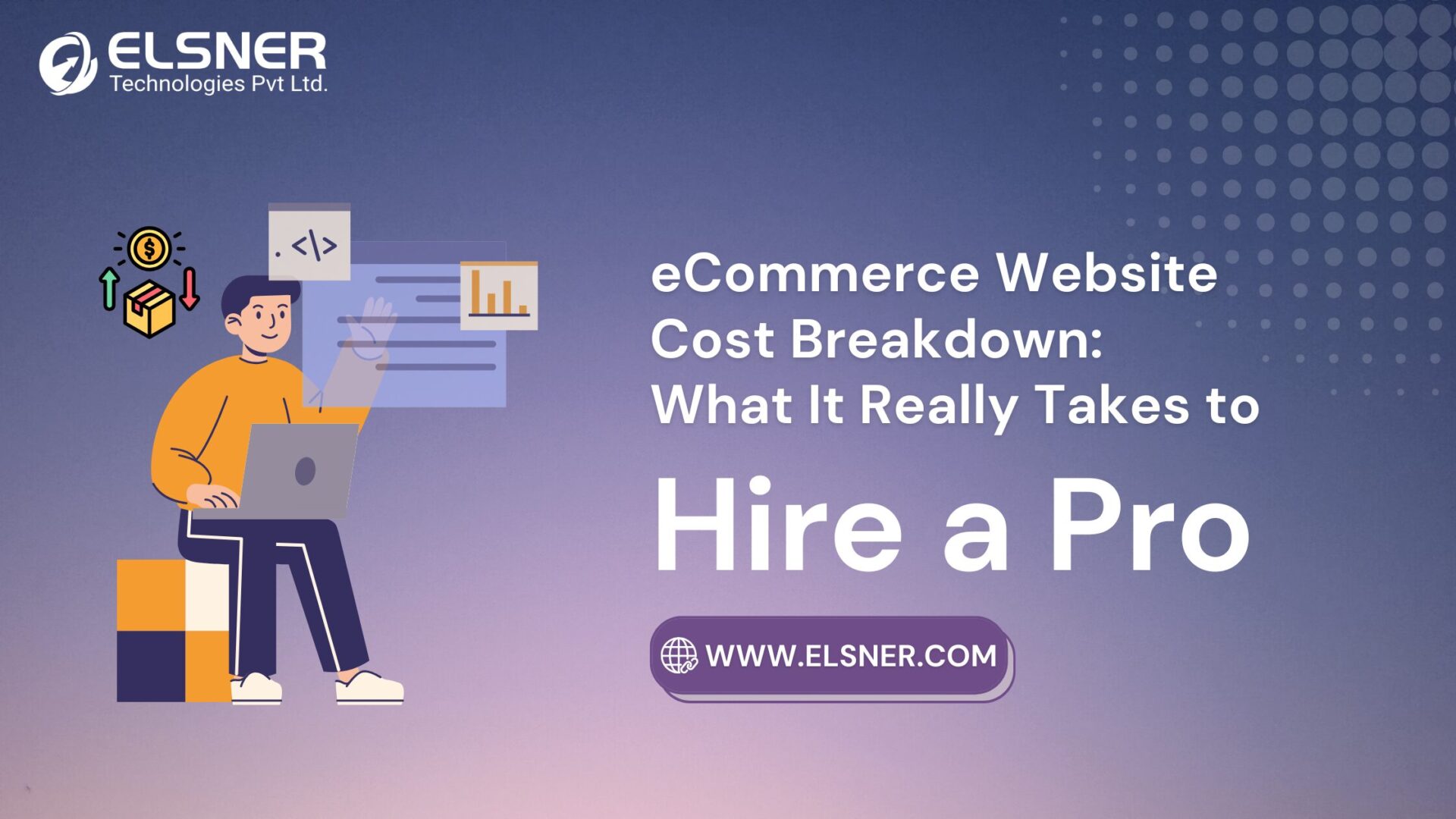- What is SaaS Ecommerce? A Quick Overview
- Benefits of SaaS Ecommerce Solutions
- Limitations of SaaS Platforms: Key Considerations
- Understanding Custom Ecommerce Development
- Why Choose Custom Ecommerce?
- Key Features of Custom Ecommerce Websites
- Key Reasons Businesses Are Choosing Custom Ecommerce Development
- a) Unlimited Customization & Flexibility
- b) Scalability for Long-Term Growth
- c) Cost-Effectiveness in the Long Run
- d) Enhanced Security & Data Control
- e) Better SEO & Performance Optimization
- f) Advanced Integrations & Third-Party Compatibility
- SaaS vs Custom Ecommerce: Key Differences
- When to Choose SaaS vs Custom Ecommerce: Ecommerce vs Saas Breakdown
- Overcoming SaaS Limitations: Why Businesses Switch from SaaS to Custom Ecommerce
- Migrating from SaaS to Custom Ecommerce: A Step-by-Step SaaS Ecommerce Guide
- How SaaS and Ecommerce SEO Differ: Boosting Your Organic Traffic
- Final Thoughts: The Future of SaaS and Ecommerce Is Flexible
- FAQs: SaaS vs Custom Ecommerce
- Q1: Is custom ecommerce more expensive than SaaS?
- Q2: Does migrating from SaaS to custom ecommerce hurt SEO?
- Q3: Can SaaS platforms integrate advanced tools like AI?
- Q4: How long does it take to migrate from SaaS to a custom Ecommerce platform?
- Q5: Can I add AI-powered features to a SaaS platform?
- Q6: Are there risks of vendor lock-in with SaaS platforms?
- Q7: What kind of maintenance is required for custom Ecommerce websites?
- Q8: Which is better for international ecommerce—SaaS or custom?
Are you torn between SaaS and custom ecommerce for your online store? Picking the perfect platform can be the difference between skyrocketing growth and getting stuck with limitations. In this comprehensive SaaS ecommerce guide, we’ll unpack the key differences, benefits, and challenges of SaaS ecommerce solutions versus custom ecommerce development so you can choose what fits your business today and tomorrow.
What is SaaS Ecommerce? A Quick Overview
SaaS and ecommerce have become inseparable for many small businesses and startups. SaaS (Software as a Service) ecommerce platforms such as Shopify, BigCommerce, Wix, and Squarespace offer hosted solutions that let you launch your store rapidly, often within days. These platforms come with drag-and-drop interfaces, built-in hosting, security, and essential ecommerce tools — no coding needed.
Benefits of SaaS Ecommerce Solutions
- Speed to Market: Launch your store quickly using customizable templates.
- Lower Upfront Costs: Avoid large development fees with affordable monthly subscriptions.
- Managed Hosting & Security: SaaS providers take care of infrastructure, security patches, and backups.
- User-Friendly: Designed for users with little or no technical experience.
For businesses on a tight timeline or budget, SaaS ecommerce platforms are an excellent entry point to the market.
Limitations of SaaS Platforms: Key Considerations
SaaS ecommerce platforms are quick, easy, and affordable—but they’re not without drawbacks. Understanding these limits can save you from growth bottlenecks later.Customization Limits
Pre-designed templates mean minimal personalization, making it harder to create a truly unique brand experience. Custom Ecommerce development offers full control over design, functionality, and advanced marketing integrations that help your store stand out.Scalability Concerns
Rapid growth can strain SaaS platforms, leading to costly plan upgrades and performance dips. Custom, scalable ecommerce solutions grow seamlessly with your business—no forced limits or surprise costs.Recurring Costs
Low monthly fees often hide extra charges like transaction costs, premium apps, and upgrades. Custom development offers ownership, predictable expenses, and no ongoing forced add-ons.Data Ownership Risks
With SaaS, your data lives on their servers, leaving you vulnerable to policy changes or shutdowns. Custom or headless ecommerce gives you full control over your data, security, and site architecture.
Understanding Custom Ecommerce Development
Custom ecommerce development means building your online store from the ground up or customizing open-source platforms like Magento or WooCommerce. This path offers unmatched flexibility, allowing you to create a unique brand experience and tailor the technology stack precisely.
Why Choose Custom Ecommerce?
- Branding freedom with a unique, scalable design without template constraints.
- Ability to integrate advanced, AI-driven features and bespoke business workflows.
- Ownership and control over your data and security protocols.
- Enhanced SEO capabilities with customized URL structures and faster site performance.
- Seamless integration with ERP, CRM, marketing tools, and third-party APIs.
Custom ecommerce is ideal for businesses aiming for long-term growth and control over their digital presence.
Key Features of Custom Ecommerce Websites
| Feature | Why It Matters |
| Tailor-Made Design & UX | Avoid generic templates; create a unique brand experience. |
| Scalability for Growth | Your store expands smoothly as your business scales. |
| Advanced Integrations | Seamless connections to CRM, ERP, marketing, and payment systems. |
| Enhanced Security & Data Ownership | Full data control protects your business and customers. |
| SEO Optimization | Optimized site structure attracts more organic traffic. |
Key Reasons Businesses Are Choosing Custom Ecommerce Development
a) Unlimited Customization & Flexibility
Imagine being forced to wear a suit that only fits a few standard sizes. That’s what SaaS platforms impose on your store design and features. A custom Ecommerce website, however, is like a tailor-made suit—every detail shaped to your unique business needs. Want a custom checkout process? Need AI-powered product recommendations that rival Amazon? Dreaming of a multi-vendor marketplace? Custom Ecommerce platforms make all these possible.Unlike rigid SaaS systems, custom solutions integrate advanced APIs and third-party tools. Whether you operate B2B, subscription services, or marketplaces, your Ecommerce website can be designed precisely to your requirements.
b) Scalability for Long-Term Growth
SaaS platforms often claim scalability, but are limited in reality, like training wheels that must be removed once you hit certain milestones. Performance bottlenecks, costly upgrades, and platform restrictions appear as your sales and traffic increase.
| Feature | SaaS Platforms | Custom Ecommerce Development |
| Traffic Handling | Limited scalability | Scales effortlessly |
| Customization | Restricted | Fully customizable |
| API Integrations | Basic | Extensive and flexible |
Many large Ecommerce brands switch from SaaS to scalable custom platforms to avoid repeated re-platforming as they grow. Collaborate with an Ecommerce agency to manage this transition smoothly and maximize your growth potential.
c) Cost-Effectiveness in the Long Run
While SaaS seems budget-friendly at first glance, “low” monthly fees mask recurring expenses:
- Endless monthly subscriptions
- Transaction fees are eating into profits on every sale
- Costly add-ons for basic features
Statistics show the average business spends around $3,500 per employee annually on SaaS tools. Investing in custom Ecommerce platform development eliminates these recurring fees—you own the entire platform rather than leasing endlessly.
d) Enhanced Security & Data Control
Security isn’t optional—it’s vital for survival. SaaS platforms commonly use shared hosting environments, making them vulnerable targets. With custom Ecommerce software development, you gain:
- Full ownership of your data
- Stronger cybersecurity measures
- Compliance with GDPR, PCI DSS, and other industry standards
No more waking up to security breach alerts from your SaaS provider.
e) Better SEO & Performance Optimization
Relying on SaaS SEO is like running a race with a flat tire—fixed URL structures, limited metadata control, and slower page speeds hinder your rankings.SEO Performance Flowchart:
[Custom Ecommerce SEO] → [Custom URL Structures] → [Faster Loading Speeds] → [Higher Google Rankings] → [More Conversions]Headless Ecommerce development allows you to fully customize URLs, supercharge loading speeds, and optimize technical SEO, making Google love your site and boosting your organic traffic.
f) Advanced Integrations & Third-Party Compatibility
Looking to add a next-gen AI chatbot? Or integrate deeply with enterprise CRM and payment gateways? SaaS platforms limit your options severely.Custom Ecommerce software development provides seamless integration capabilities for:
- ERP, CRM, and payment processing systems
- Custom AI chatbots and automation tools
- Unlimited external tool compatibility
Think of SaaS as a pre-furnished apartment—you get only what’s inside. Custom Ecommerce is your dream home, built exactly to your design, control, and expansion needs.If complete control, scalability, and cost efficiency matter to you, it’s time to hire expert Ecommerce developers and switch to a custom solution. A trusted Ecommerce website development company can bring your vision to life.With the right SaaS Ecommerce SEO strategies, your store can overcome limitations and reach its fullest potential.
SaaS vs Custom Ecommerce: Key Differences
| Feature | SaaS Ecommerce Solutions | Custom Ecommerce Development |
| Setup Speed | Days to weeks | Weeks to months |
| Cost Structure | Monthly subscriptions + add-ons | One-time development fee + maintenance |
| Design & Customization | Limited by templates and third-party apps | Fully customizable |
| Scalability | Suitable for small/mid-sized stores | Scales with business growth |
| Data Control & Security | Vendor-controlled data on shared servers | Full ownership and compliance control |
| SEO & Performance | Basic SEO features, some load speed constraints | Advanced SEO-friendly structure and faster performance |
When to Choose SaaS vs Custom Ecommerce: Ecommerce vs Saas Breakdown
Choose SaaS ecommerce solutions if:
- You want a fast store launch with minimal technical overhead.
- You prefer predictable monthly costs over large upfront investments.
- You run a straightforward business model with standard ecommerce features.
Opt for custom ecommerce development if:
- You desire tailored user experiences and unique branding.
- Your business model requires complex workflows, B2B features, or large catalogs.
- You want full control over SEO, data privacy, and security.
- You intend to build a scalable platform for long-term growth.
Overcoming SaaS Limitations: Why Businesses Switch from SaaS to Custom Ecommerce
While SaaS platforms offer ease and speed, companies often outgrow them due to:
- Limited customization options.
- Constraints on scalability leading to performance bottlenecks.
- Increasing costs due to transaction fees and premium apps.
- Lack of full control over business-critical data.
Many businesses transition to headless ecommerce to gain freedom, flexibility, and growth potential.
Migrating from SaaS to Custom Ecommerce: A Step-by-Step SaaS Ecommerce Guide
Switching is manageable when done right:
- Define Requirements: Identify must-have features and integration needs.
- Select Technology: Choose platforms and architectures like headless ecommerce.
- Migrate Data Carefully: Transfer customers, orders, and URLs with SEO-friendly redirects.
- Test Thoroughly: Check site speed, responsiveness, and user experience.
- Launch & Monitor: Go live smoothly with ongoing performance tracking.
Professional ecommerce developers can ensure minimal SEO disruption and high performance post-migration. For expert help with your ecommerce journey, consider partnering with seasoned ecommerce developers who can tailor solutions uniquely for you.
How SaaS and Ecommerce SEO Differ: Boosting Your Organic Traffic
SEO is essential no matter your choice, but custom ecommerce unlocks superior SEO benefits:
- Full control over URL structure, metadata, and schema markup.
- Ability to optimize site speed and mobile responsiveness.
- Targeted keyword strategies for competitive terms like “SaaS vs Custom Ecommerce” and “Ecommerce vs Saas.”
This technical SEO flexibility helps drive higher organic traffic and rankings. Check out ecommerce growth storiesby making the switch to custom Ecommerce development and reclaiming control.
Final Thoughts: The Future of SaaS and Ecommerce Is Flexible
SaaS ecommerce solutions excel at quick launches and easy maintenance but may limit long-term growth. Meanwhile, custom ecommerce development delivers powerful flexibility, scalability, and SEO advantages for businesses serious about growth.Choosing the right ecommerce path aligns with your business goals, budget, and vision. To achieve the best results, hire an eCommerce Developer today.
FAQs: SaaS vs Custom Ecommerce
Q1: Is custom ecommerce more expensive than SaaS?
Custom ecommerce requires a higher initial investment but often results in lower costs over time due to no recurring subscription fees.
Q2: Does migrating from SaaS to custom ecommerce hurt SEO?
With careful planning and SEO-focused migration, you can maintain or even improve your search rankings.
Q3: Can SaaS platforms integrate advanced tools like AI?
They offer basic integrations, but custom ecommerce provides limitless possibilities for deep AI and third-party tool integrations.
Q4: How long does it take to migrate from SaaS to a custom Ecommerce platform?
Migration typically takes a few weeks to months, depending on store size, data complexity, and custom features needed. Careful planning minimizes downtime and SEO impact.
Q5: Can I add AI-powered features to a SaaS platform?
Basic AI tools may be available, but integrating advanced or custom AI usually requires a custom Ecommerce solution.
Q6: Are there risks of vendor lock-in with SaaS platforms?
Yes. Moving off a SaaS platform often involves high costs and technical challenges, making businesses dependent on their initial choice.
Q7: What kind of maintenance is required for custom Ecommerce websites?
Custom sites require regular updates, security monitoring, and support, often handled by your development team or agency.
Q8: Which is better for international ecommerce—SaaS or custom?
Custom Ecommerce platforms offer better flexibility for multi-currency, multi-language, and cross-border compliance needs.

About Author
Dipak Patil - Delivery Head & Partner Manager
Dipak is known for his ability to seamlessly manage and deliver top-notch projects. With a strong emphasis on quality and customer satisfaction, he has built a reputation for fostering strong client relationships. His leadership and dedication have been instrumental in guiding teams towards success, ensuring timely and effective delivery of services.




